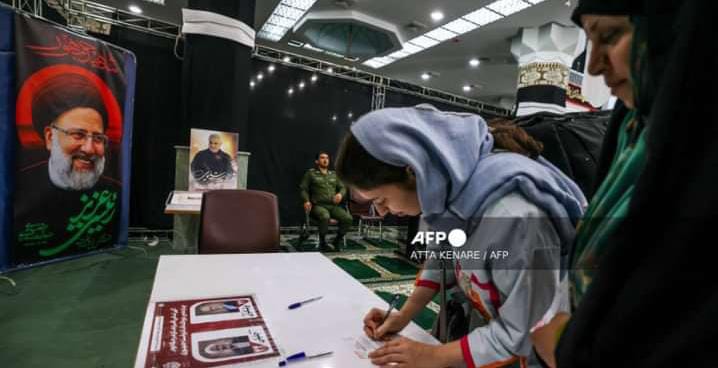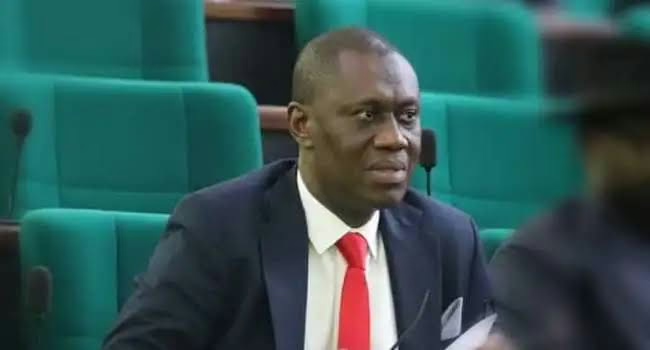Polls opened Friday for Iran’s runoff presidential election, the interior ministry said, pitting reformist candidate Masoud Pezeshkian against ultraconservative Saeed Jalili in the race to succeed Ebrahim Raisi, who died in a May helicopter crash.
The Islamic Republic’s supreme leader Ayatollah Ali Khamenei, who has the final say in all state matters, cast his ballot when the polls opened at 08:00 am (0430 GMT), state TV showed.
“We are starting the second round of the 14th presidential election to choose the future president from among the two candidates across 58,638 polling stations in the country and all stations abroad,” Interior Minister Ahmad Vahidi said, according to state TV.
The vote comes against the backdrop of heightened regional tensions over the war in Gaza, Iran’s dispute with the West over its nuclear programme and popular discontent at the state of the country’s sanctions-hit economy.
In last week’s first round, Pezeshkian, who was the only reformist permitted to stand, won the largest number of ballots, around 42 per cent, while the former nuclear negotiator Jalili came in second place with 39 per cent, according to figures from Iran’s elections authority.
Only 40 per cent of Iran’s 61 million eligible voters cast their ballot — the lowest turnout in any presidential election since the 1979 Islamic Revolution.
On Wednesday, Khamenei called for a higher turnout in the runoff.
“The second round of the presidential election is very important,” he said in a video carried by state TV.
He said participation was “not as expected” in the first round but that it was not an act “against the system.”
Last week’s vote saw the conservative parliament speaker Mohammad Bagher Ghalibaf come in third place with 13.8 per cent, while cleric Mostafa Pourmohammadi garnered less than one per cent.
Iran’s presidential election was originally scheduled for 2025 but was brought forward by the death of ultraconservative president Raisi in a May helicopter crash.
The rival candidates in the runoff have held two debates where they discussed Iran’s economic woes, international relations, the low voter turnout and internet restrictions.
Pezeshkian is a 69-year-old heart surgeon who has represented the northwestern city of Tabriz in parliament since 2008.
He has earned the support of Iran’s main reformist coalition, with former reformist presidents Mohammad Khatami and Hassan Rouhani declaring their backing for his bid.
Jalili, 58, rallied a substantial base of hardline supporters and received backing from Ghalibaf and two other ultraconservative candidates who dropped out of the race before the first round.
In one recent debate, the rivals expressed dismay over turnout in the first round.
On Tuesday, Pezeshkian said people were “fed up with their living conditions … and dissatisfied with the government’s management of affairs.”
Ali, a 24-year-old university student who asked that only his first name be used, said the better choice is Pezeshkian, whom he believes would work on “opening the country to the rest of the world.”
Pezeshkian has called for “constructive relations” with Washington and European countries to “get Iran out of its isolation”.
Jalili, known for his uncompromising anti-West position, has insisted that Tehran does not need the 2015 nuclear deal with the United States and other world powers to make progress.
The deal — which Jalili said violated all Iran’s “red lines” by allowing inspections of nuclear sites — had imposed curbs on Iran’s nuclear activity in return for sanctions relief.
The accord has been hanging by a thread since 2018 when the US withdrew from it.
At a campaign event late Wednesday, 40-year-old Maryam Naroui said she believed Jalili was “the best option for the country’s security”.
Jalili has held several senior positions in the Islamic Republic, including in Khamenei’s office in the early 2000s.
He is currently one of Khamenei’s representatives in the Supreme National Security Council, Iran’s highest security body.
Regardless of the result, Iran’s next president will be in charge of applying state policy outlined by the supreme leader, who wields ultimate authority in the country.
AFP











Leave a Reply